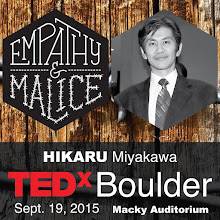(Fairness in judging the history)
The study of the human history is far more complex than the study of the history of nature. It is the study of the history (evolution) of human consciousness reflecting the development of mental, intellectual, cognitive faculties (...and much more). It is also the study of both individual and collective human psycho-emotional development. Each era may gift us or challenge us in some new ways, and as a matter of fact, we may adopt/adapt to the new situation/ideas or reject them.
When we do the research, especially to do with the human history, first and foremost, it is essential to put ourselves in the shoes of the people of that ear/period. We need to be able to think and feel as the people of those eras might have done and not just transplanting ourselves (our contemporary mind) into those eras as we are.
As soon as we try to evaluate the history by applying our 20th/21st Century mentality/mind set, we are in danger of introducing something very foreign to the historical period(s) in question. We may be unwittingly introducing the bias, prejudice, and/or values only relevant to us.
During our century, we have been awakened/re-awakened (introduced )to the many new ideas through the different movements. Within the artistic movements alone, the people had to readjust our ideas about art.
For example, we are too educated and informed compared to the majority of the common people in the 15th Century Europe, the time of Leonardo da Vinci. Back then, Italy was not yet united as an independent country as we know today. Although the illiteracy maybe the problem today, back then, it was far worse.
In the coming blog, I will introduce one of the exercises I have done with my students.
The study of the human history is far more complex than the study of the history of nature. It is the study of the history (evolution) of human consciousness reflecting the development of mental, intellectual, cognitive faculties (...and much more). It is also the study of both individual and collective human psycho-emotional development. Each era may gift us or challenge us in some new ways, and as a matter of fact, we may adopt/adapt to the new situation/ideas or reject them.
When we do the research, especially to do with the human history, first and foremost, it is essential to put ourselves in the shoes of the people of that ear/period. We need to be able to think and feel as the people of those eras might have done and not just transplanting ourselves (our contemporary mind) into those eras as we are.
As soon as we try to evaluate the history by applying our 20th/21st Century mentality/mind set, we are in danger of introducing something very foreign to the historical period(s) in question. We may be unwittingly introducing the bias, prejudice, and/or values only relevant to us.
During our century, we have been awakened/re-awakened (introduced )to the many new ideas through the different movements. Within the artistic movements alone, the people had to readjust our ideas about art.
For example, we are too educated and informed compared to the majority of the common people in the 15th Century Europe, the time of Leonardo da Vinci. Back then, Italy was not yet united as an independent country as we know today. Although the illiteracy maybe the problem today, back then, it was far worse.
In the coming blog, I will introduce one of the exercises I have done with my students.



No comments:
Post a Comment